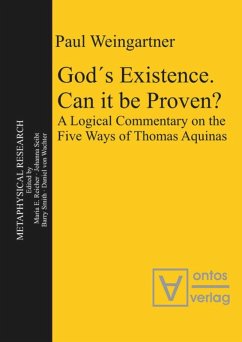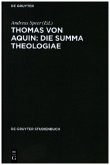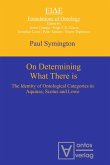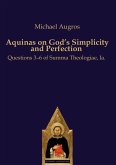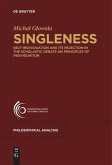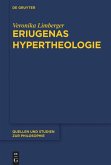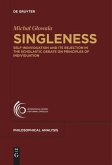The aim of the book is to show that the Five Ways of Thomas Aquinas, i.e. his five arguments to prove the existence of God, are logically correct arguments by the standards of modern Predicate Logic. In the first chapter this is done by commenting on the two preliminary articles preceeding the Five Ways in which Thomas Aquinas points out that on the one hand the existence of God is not self-evident to us and on the other hand, that, similar as in some scientific explanations, the mere existence of a cause for an effect which is evidently known to us can be proved. In the second chapter every argument is translated into the symbolic form of Predicate Logic and its logical validity is shown. Additionally a detailed and critical discussion of the premises of each argument is given.
Bitte wählen Sie Ihr Anliegen aus.
Rechnungen
Retourenschein anfordern
Bestellstatus
Storno

